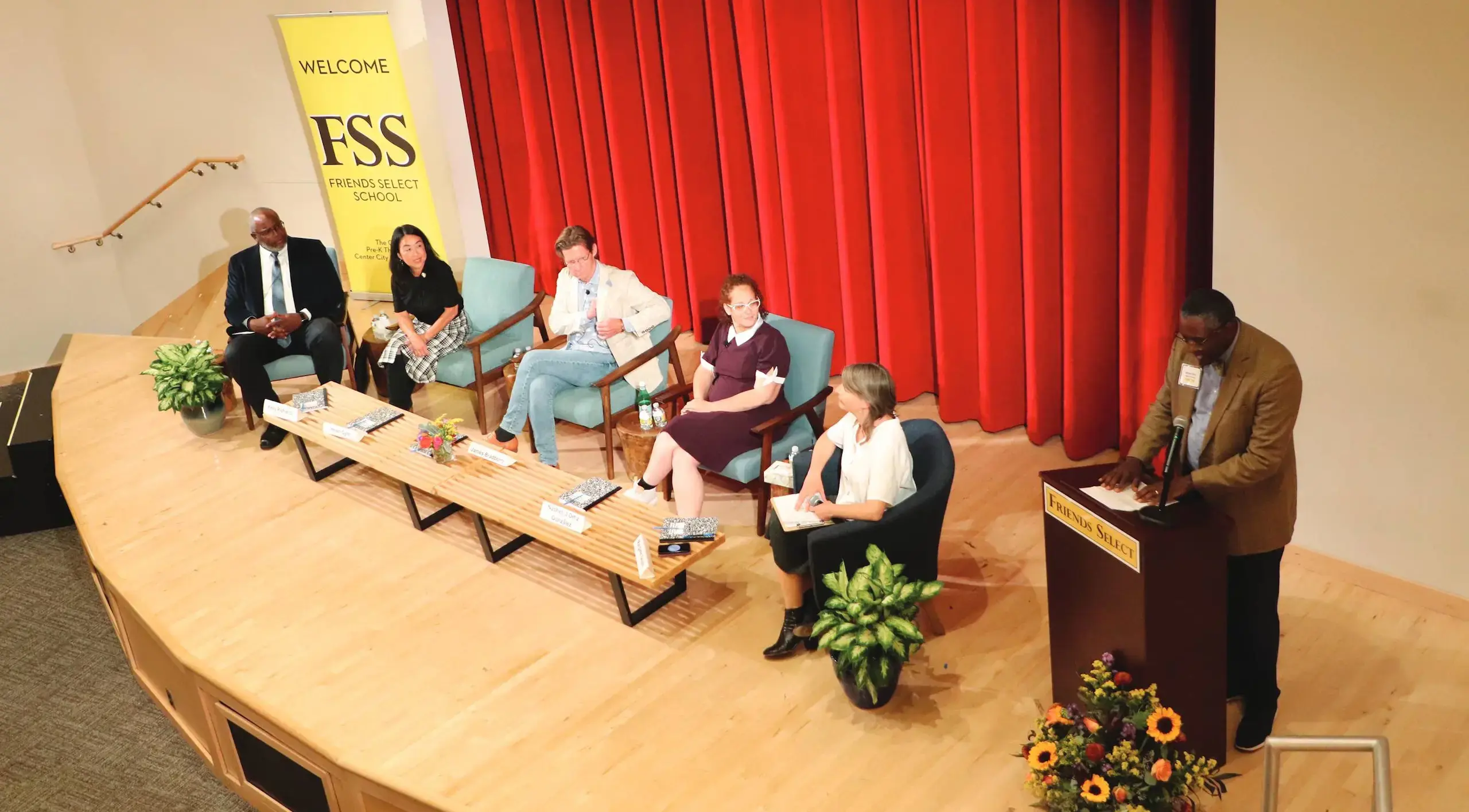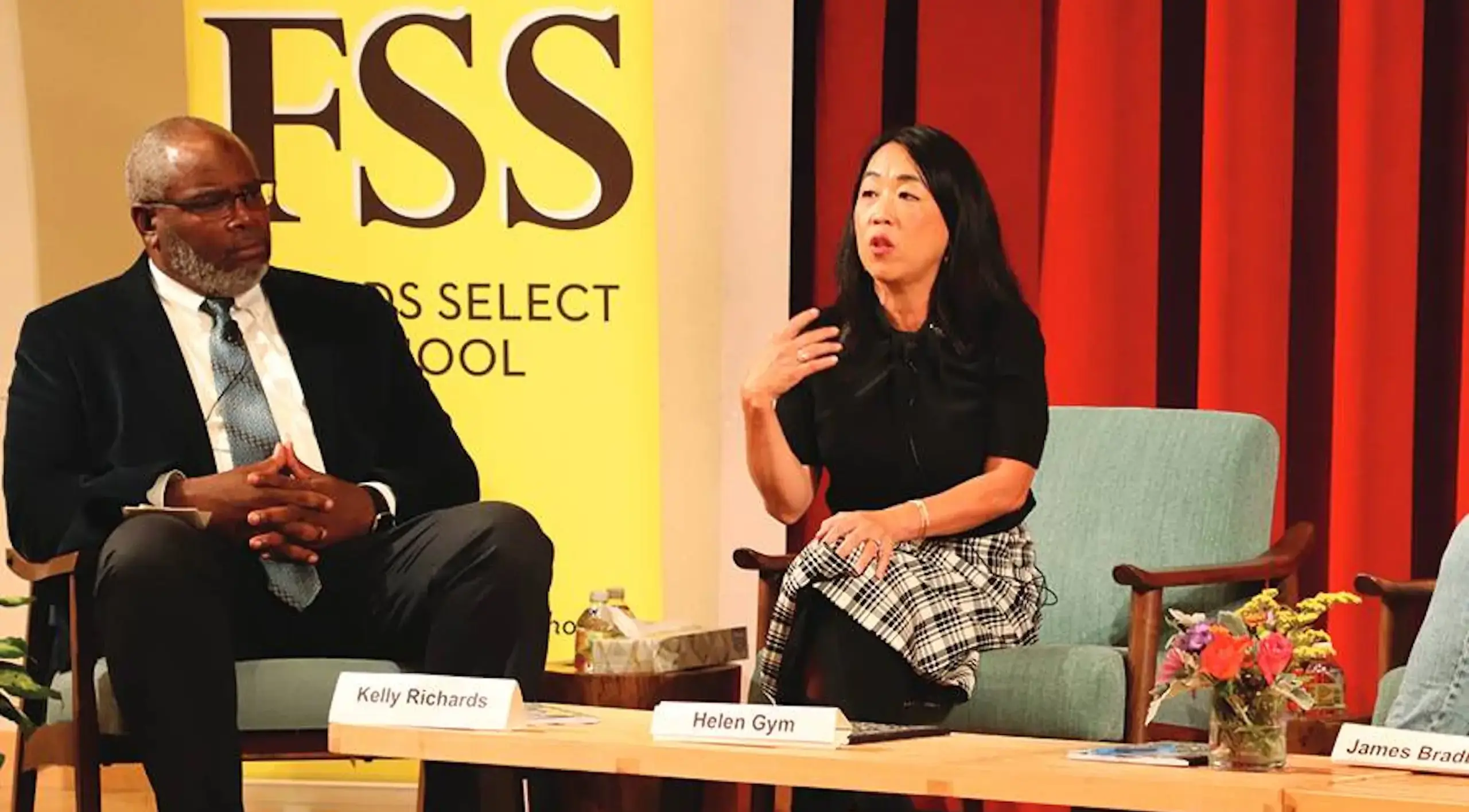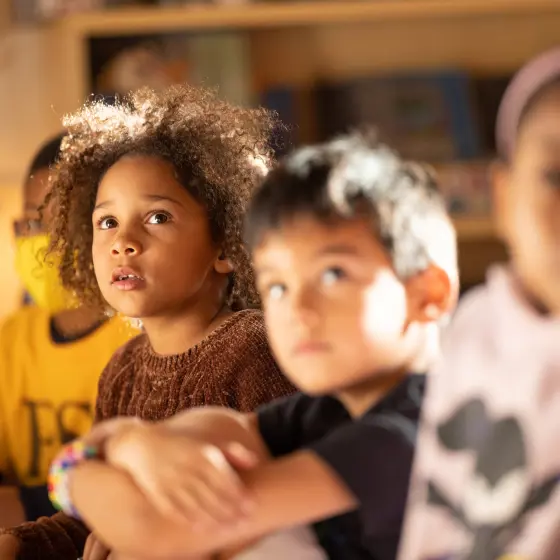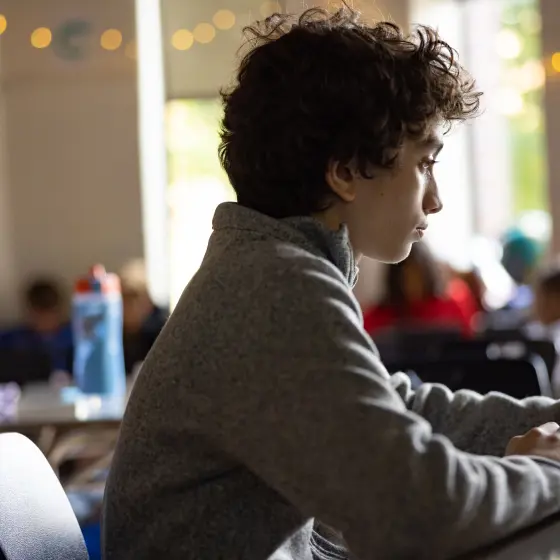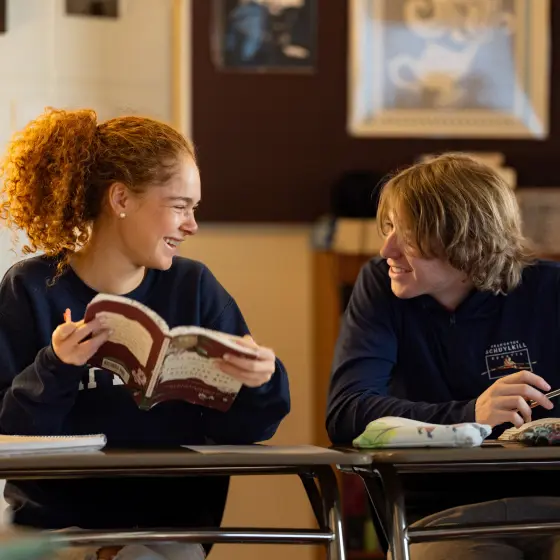New Transformation Talk Series: Gathering Local Thought Leaders to Elevate Civic Discourse
Philadelphia has reversed five decades of population decline over two censuses and continues to grow.
|
As a longtime community organizer, she feels optimistic about the number of individuals, some without school-aged children, investing time and money in their community’s educational ecosystem. “Harnessing the power of public desire and the willingness to go from a volunteer individual to building out a larger collective is extremely hopeful,” she said. “Many of them are contributing because perhaps they will have a child at some point in their local school, but each of them sees their future in that educational building, whether or not it’s their own family. To me, that is the best of Philadelphia, and it is how this city is going to continue to grow and be the great American city that we’ve always been.” |
Friends Select School hosted the first installment of its Transformation Talk series last September, titled “Building for the Future: How to Create Lasting Equitable and Accessible Learning Spaces.”
The panel discussion featured James Bradberry, principal of James Bradberry Architects; Helen Gym, mayoral candidate and former Philadelphia city councilmember at-large; Nasheli J Ortiz González, executive director of Taller Puertorriqueño; and Kelly Richards, president and director of the Free Library of Philadelphia. The event was presented both via livestream and in-person in the Blauvelt Theatre and was moderated by Margaret Smith, director of city curriculum.
“Friends Select’s current Transformation Campaign is building a school campus that is more accessible, adaptable, and equitable than ever before,” said Michael Gary, head of school. “Our Transformation Talks are a series of public forums inspired by our campaign, with thought leaders and experts who will elevate our civic discourse to illuminate the ways individuals learn in very different spaces around our city. In doing so it’s a chance for us as a school community to think about the symbiotic relationship between Friends Select and the city that it has called home for hundreds of years.” Through the series, Friends Select will explore the public role that private institutions play in the educational ecosystem, and what it means to be a school that is “in the city and of the city.”
From Helen’s perspective as a former School District of Philadelphia teacher, the underfunding of public education and the city’s poverty level are troubling. She feels strongly that it is the responsibility of public and private institutions to work together to help create equitable learning opportunities for all Philadelphians. “A great educational city is an ecosystem, from the earliest years of a child’s cognitive abilities all the way through college and beyond,” she explained. “We need to be a collective enterprise in supporting young people and their families from the moment they take their first breath to the time that they leave wonderful institutions like Friends Select or any other school building.”
Nasheli noted the significance of education-based organizations to also include justice and cultural responsiveness in their mission. Known as “El Corazón Cultural del Barrio”—the Cultural Heart of Latino Philadelphia—Taller is a community-based cultural institution whose primary purpose is to preserve, develop, and promote Puerto Rican arts and culture. Nasheli’s organization hosts public exhibitions and education programs for children and youth, as well as provides extensive outreach programs at schools and community centers. “The goal of education is economic power and enrichment to break the circle of poverty,” she shared. “Education needs to be a holistic process.”
A longtime Friends Select partner and Parkway neighbor, the Free Library of Philadelphia and its 55 branches across the city commit to accessible, free programming for all. That includes early childhood education, a library for the visually impaired, services for senior citizens, classes for English language learners, career building programs, and much more. In addition, the Free Library has loaned over 11,000 Wi-Fi hotspots and tablets to Philadelphia residents as part of the Emergency Connectivity Fund (ECF) Device Lending Program, initiated at the start of the COVID-19 pandemic. “Our public library is situated in all communities in Philadelphia, so there are many ways we can provide a quality of life for all citizens,” Kelly said. “We tie into communities in many different ways.”
Panelists also discussed the role architecture and design play in educational spaces in ensuring accessibility. In 2016, Taller opened its 24,000 square-foot El Corazón Cultural Center, becoming the most prominent Latinx arts and cultural organization in Pennsylvania. Located close to public transportation and fully compliant with the Americans with Disabilities Act Standards for Accessible Design, or ADA compliant, the El Corazón Cultural Center is fitted with spacious classrooms, flexible-use spaces, and modern technology. For the Free Library, funding from the city’s Rebuild program has allowed the organization to remodel facilities with modernized spaces and moveable furniture, allowing for adaptability in their programming to meet the physical needs of all visitors.
James Bradberry, principal architect of Bradberry Architects, understands the importance of considering the needs of all users of an educational space in architectural design. For Friends Select’s Parkway Building and upper school STEAM Building, James created classrooms that accommodate a variety of learning and teaching styles, included areas for collaboration and group work, added gender-neutral bathrooms, incorporated flexible-use spaces, and ensured ADA compliance. In explaining his design process, James stressed the importance of first listening to his clients and their community to identify the different needs, wants, and functions that need to be met. “If I don’t listen to the institution and try to make the design that is ultimately a manifestation of its history, culture, ethos, and pedagogy, it’s going to be a failure,” he explained.
For education-focused nonprofits to advocate in a unified manner for equitable education for all Philadelphians, communication is key in establishing partnerships. Kelly suggested creating synergy with nonprofits, social service agencies, or other departments of the city by offering library spaces across the city from which services could be offered. For schools, he hopes to invite conversation with educators as well as create a hybrid student ID and library card so that curriculum can be supported by Free Library services. “We as nonprofits need to build bridges through which we can collaborate and further understand that this is a holistic way of working. We are supplementing many things that the government is not providing,” Nasheli said. “To escape poverty, a person needs to utilize a number of programs until they are an adult.”
Philadelphia has reversed five decades of population decline over two censuses and continues to grow, powered by immigration and families deciding to raise children in the city. With the latter, Helen has seen many small groups forming in neighborhoods to support businesses and public safety, as well as to raise money for neighborhood public schools. As a longtime community organizer, she feels optimistic about the number of individuals, some without school-aged children, investing time and money in their community’s educational ecosystem. “Harnessing the power of public desire and the willingness to go from a volunteer individual to building out a larger collective is extremely hopeful,” she said. “Many of them are contributing because perhaps they will have a child at some point in their local school, but each of them sees their future in that educational building, whether or not it’s their own family. To me, that is the best of Philadelphia, and it is how this city is going to continue to grow and be the great American city that we’ve always been.”
Where Next?


